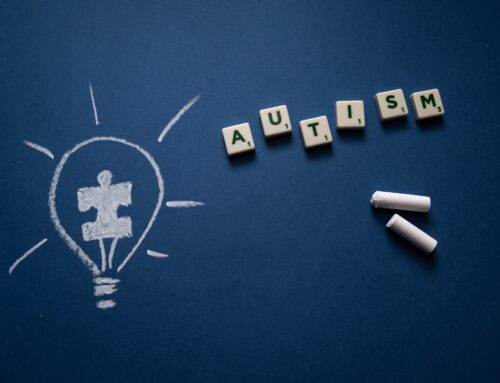Introduction
The common misconception is that Autism Spectrum Disorder (ASD) is a mental illness. In reality, autism is a neurodevelopmental disorder distinct from mental illnesses like depression or anxiety. In this blog post, we will explore the world of autism, its symptoms, and its impact on an individual’s life. We will also discuss the various support and intervention strategies available for those with ASD. So, let’s dive in and learn more about this fascinating and complex condition.
What is Autism Spectrum Disorder (ASD)?
Autism Spectrum Disorder, or simply autism, is a neurodevelopmental disorder characterized by challenges in social interaction, communication, and repetitive or restrictive patterns of behaviour, interests, or activities. Autism is a spectrum disorder because the severity and manifestation of symptoms can vary significantly from person to person.
Autism vs. Mental Illness: Understanding the Difference
To understand why autism is not classified as a mental illness, it’s essential to differentiate between the two terms. Mental illnesses, also known as mental disorders, are psychological conditions that affect an individual’s thoughts, feelings, and behaviours. Examples include depression, anxiety disorders, and schizophrenia.
On the other hand, neurodevelopmental disorders like autism result from atypical brain development and primarily impact an individual’s cognitive, emotional, and social functioning. While autism can have mental health implications, it is important to recognize that it is a different condition and not classified as a mental illness.
Symptoms of Autism Spectrum Disorder
The symptoms of ASD can manifest differently in each individual, but there are some common characteristics:
- Social interaction difficulties: Individuals with autism may struggle to understand social cues, make eye contact, and develop age-appropriate friendships. They may also have difficulty understanding others’ emotions or expressing their own.
- Communication challenges: People with autism may struggle with verbal and non-verbal communication. They might have delayed speech development or difficulty with conversation, as well as challenges understanding gestures, facial expressions, and tone of voice.
- Repetitive behaviours and restricted interests: Individuals with ASD often exhibit repetitive behaviours, such as hand flapping, rocking, or spinning. They may also have restricted interests, focusing intensely on specific topics or activities to the exclusion of others.
- Sensory sensitivities: Many people with autism have sensory sensitivities, which can make them either hyper-responsive or hypo-responsive to sensory stimuli, such as sounds, textures, or tastes.
The Impact of Autism on Daily Life
Living with autism can present various challenges that affect multiple aspects of an individual’s life:
- Social relationships: Difficulties with social interaction and communication can make it challenging for individuals with autism to form and maintain meaningful relationships. They may struggle to understand social norms and be perceived as socially awkward.
- Education and work: Autism can impact an individual’s academic and workplace performance due to difficulties with communication, social interaction, and executive functioning skills. Students may require additional support in the classroom, and adults may need accommodations in the workplace.
- Mental health: Individuals with autism are at a higher risk of developing mental health conditions, such as anxiety, depression, and obsessive-compulsive disorder. These conditions may stem from the challenges faced in daily life or may result from the neurodevelopmental differences underlying autism.
Support and Intervention Strategies for Autism
There is no cure for autism, but various support and intervention strategies can help individuals with ASD manage their symptoms and lead fulfilling lives:
- Early intervention: Early intervention services can be crucial in supporting the development of communication, social, and cognitive skills in young children with autism. These services may include speech therapy, occupational therapy, and applied behaviour analysis (ABA).
- Educational support: Schools can play a vital role in helping students with autism succeed academically. Special education programs, individualized education plans (IEPs), and classroom accommodations can significantly impact a student’s performance and overall experience.
- Social skills training: Social skills training can help individuals with autism learn how to navigate social situations, understand social cues, and develop appropriate communication strategies. These programs can be delivered in individual or group settings.
- Occupational therapy: Occupational therapists can help individuals with autism develop strategies for managing sensory sensitivities and improving fine motor skills, self-care, and daily living activities.
- Cognitive-behavioural therapy (CBT): CBT can benefit individuals with autism who experience mental health challenges, such as anxiety or depression. This therapy focuses on identifying and changing negative thought patterns and behaviours.
- Family support and education: Providing support and education to families of individuals with autism is essential. Family members can learn about autism, intervention strategies, and coping mechanisms, which can help manage the challenges faced by their loved ones.
- Support groups and communities: Connecting with other individuals and families affected by autism can provide valuable social support, information, and resources.
Conclusion
In conclusion, autism is not a mental illness but a neurodevelopmental disorder with various symptoms and varying severity. While autism can present numerous challenges in daily life, many support and intervention strategies are available to help individuals with ASD and their families lead fulfilling and meaningful lives.
By raising awareness and understanding about autism, we can combat misconceptions and foster a more compassionate and supportive society for those with ASD. Remember, knowledge is power, and by sharing accurate information about autism, we can make a positive difference in the lives of those affected by this complex and fascinating condition.



